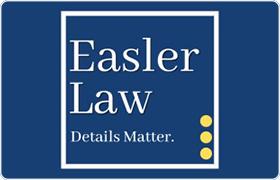 Melbourne Beach Real Estate Lawyers, Florida
Melbourne Beach Real Estate Lawyers, Florida
Sponsored Law Firm
-
 x
x

Click For More Info:
-
Easler Law, PLLC
508 N. Harbor City Blvd. Melbourne, FL 32935» view mapReal Estate Law Details Matter.®
At Easler Law we recognize that small details can make a tremendous impact. Attorneys who take the time to listen carefully and understand their clients.
800-676-7130
Lawyers
<
21-28 of 28 matches
Construction, Litigation, Business & Trade, Administrative Law
Commercial Real Estate, International Tax, Trusts, Estate Planning
Guardianships & Conservatorships, Estate Planning, Commercial Real Estate, Trusts
Elder Law, Estate, Commercial Real Estate, Estate Planning




 Andrew Easler Melbourne, FL
Andrew Easler Melbourne, FL Practice AreasExpertise
Practice AreasExpertise